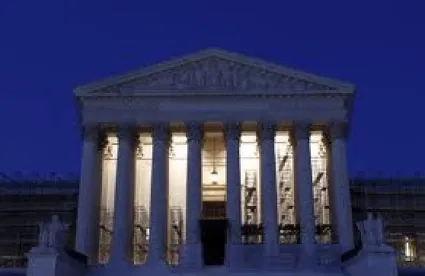The first Monday of each October marks the beginning of a fresh term for the Supreme Court of the United States. As the 2016 term approaches, the court’s docket has already begun to fill with cases that will impact commercial practitioners. While the court will continue to accept additional cases throughout the upcoming term, it has already agreed to hear at least five cases that may have significant implications for commercial lawyers throughout the country.
First, companies that conduct business overseas should carefully watch Venezuela v. Helmerich & Payne Int’l, No. 15-423. That case will determine the standard a plaintiff must meet in order to be able to sue a foreign government. The Foreign Sovereign Immunities Act (“FSIA”) provides that “a foreign state shall be immune from the jurisdiction of the courts of the United States and of the States” except in certain limited circumstances. One such circumstance arises when a foreign government “expropriates” the property of a U.S. company. The plaintiffs in this case are suing Venezuela for its action in nationalizing private oil infrastructure in that country. The Supreme Court will address the scope of jurisdiction when a foreign government takes property owned by a U.S. company and what a company suing a foreign government must plead to gain access to U.S. courts for relief.
Second, the court will examine the anti-trust implications of agreements between members of a trade or business association. In Visa v. Stoumbos, No. 15-962, the plaintiffs challenge the way banks set ATM fees. Their challenge focuses on the alleged interrelationship between a bank trade association and its members. A circuit split exists as to whether the “conspiracy” requirement for a Sherman Act violation occurs when, without more, members of a business or trade association agree to adhere to the association’s rules and possess governance rights in the association. The case bears watching because of the impact it may have on trade associations and the exposure it could create under the Sherman Act for companies that participate in those associations.
Third, the court will take up an important bankruptcy question regarding whether a bankruptcy court may approve distributions that have the effect of altering the mandatory order of priorities under the Bankruptcy Code. Czyzewski v. Jevic Holding Corporation, No. 15-649. The order of priorities provides a rule for how bankruptcy assets are distributed and protects creditors higher on the list of priorities. These seemingly absolute bankruptcy priorities were altered in this case under a so-called “structured dismissal” in which the bankruptcy court issued orders dismissing certain aspects of the bankruptcy case (and thereby disposing the estate’s assets) without approving a bankruptcy plan. Through structured dismissals, the bankruptcy court ultimately placed a group of creditors (terminated employees with wage claims) lower in the order of priorities than they otherwise would have been under the statutory system for determining which creditors take first from a bankruptcy estate. A decision upholding this process could potentially expand the power of bankruptcy trustees and bankruptcy courts to alter the rights of creditors through structured dismissals or settlements, thereby upsetting the expectations of senior creditors.
Fourth, the court will review the ability of private entities to sue federally chartered corporations in federal court. In Lightfoot v. Cendant Mortgage Corporation, No. 14-1055, the plaintiffs seek to sue Fannie Mae, an entity whose Congressional charter allows it “to sue and be sued.” The Court will determine whether this language in the charter – and other similar federal charters – creates original jurisdiction for those entities to be sued in federal court. The case will have paramount importance to any company doing business with a federally chartered entity.
Fifth, the court has agreed to hear a significant case affecting when government regulation of property will amount to a “taking” requiring just compensation. The Supreme Court has long held that excessive government regulation can so deprive the owner of the use of property that it triggers the “just compensation” requirement. In Murr v. Wisconsin, No. 15-214, the court will determine the scope of the property subject to this rule. In Murr, the plaintiff owned two separate but contiguous parcels of land. A local ordinance prevented development of one lot, but not the other. The lower courts treated these separate parcels as one piece of property. Since the ordinance allowed one of the parcels to be sold, these earlier cases found no regulatory taking and denied compensation to the landowner.
The case could have significant implications for regulated industries faced with excessive government regulation. If the lower court’s decision stands, governments will have an “escape valve” to avoid the compensation requirement that might otherwise be triggered through a regulation. Conversely, if viewed from the business perspective, the lots are separate investments and treating them as such could greatly expand the availability of compensation for regulatory takings.
While more cases will certainly be added to the court’s docket, the cases already before the court for its upcoming term will have great importance to the business community.




 />i
/>i

